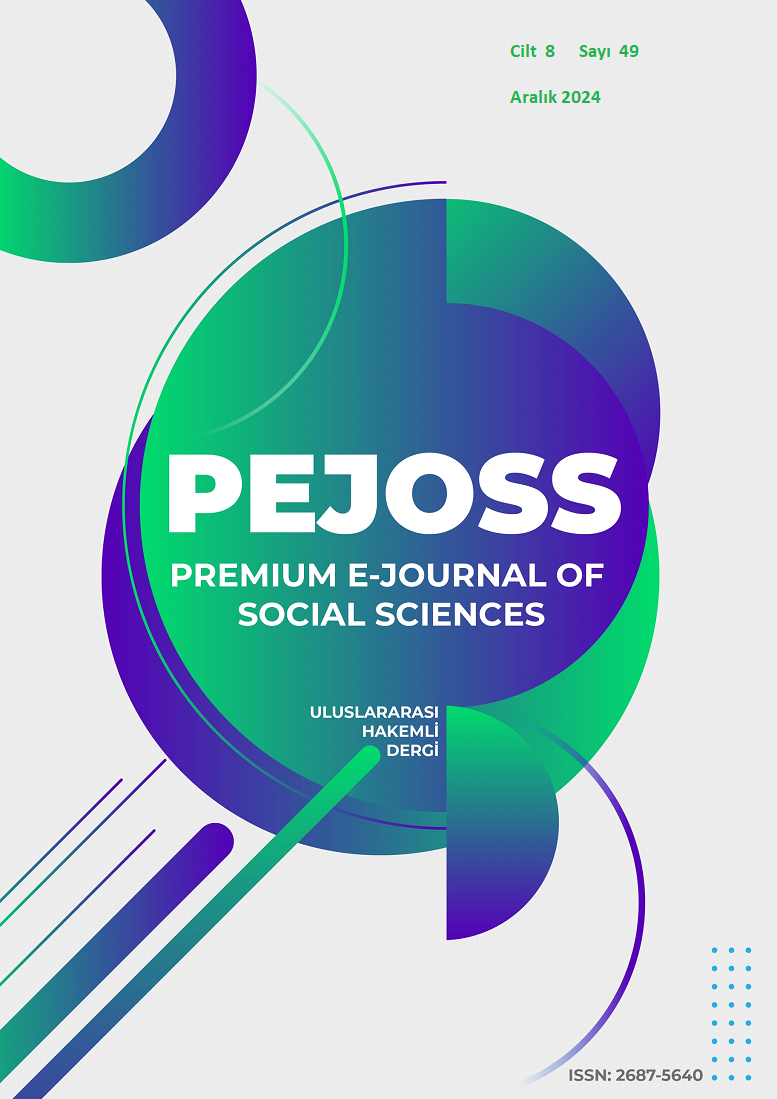Establishing Social Peace and Harmony (Zakat, Charity, and Almsgiving)
DOI:
https://doi.org/10.5281/zenodo.14580358Keywords:
Peace (Sulh), Zakat, Sadaqah, Tranquility (Huzur), InfaqAbstract
Humans, from birth to death, are social beings who cannot sustain themselves entirely on their own and require the support of others to continue their lives. They have both material and spiritual needs. To meet their material needs, they must work and earn money. As for their spiritual needs, these can be fulfilled through love, compassion, mercy, and meaningful sharing. In societies where human needs are not met both materially and spiritually, an atmosphere of insecurity, unhappiness, and constant potential for chaos emerges. The establishment of social peace and harmony, along with the emergence of feelings of compassion and mercy towards others, depends on the wealthy in society providing financial assistance to the poor, orphans, and those in need. It also relies on Muslims supporting one another spiritually, fostering a sense of unity and solidarity.
In this study, we aim to highlight the importance of zakat, sadaqah, and infaq, which are the key charitable institutions commanded by Islam. It is essential that disputes and grudges among people are resolved swiftly and peacefully. This study focuses on measures to prevent undesirable situations that threaten social peace and harmony, including disputes that may even lead to loss of life, by emphasizing the role of zakat, sadaqah, and infaq in resolving such conflicts in light of certain Quranic verses and hadiths. Additionally, the responsibilities of a Muslim towards others in social life are also discussed.
Downloads
References
Apaydın, H. Y. (2001). "Karz". TDV İslâm Ansiklopedisi 24. TDV Yayınları.
Buhârî, İ. (1981). Câmiʿu’ṣ-ṣaḥîḥ. Çağrı Yayınevi.
Cürcânî, S. Ş. (1403/1983). Kitâbu’t-taʿrîfât. Dâru-Kütübi’l İlmiyye.
Çağrıcı, M. (2000). "İnfak". TDV İslâm Ansiklopedisi 22. TDV Yayınları.
Ebû Dâvûd, S. (1981). es-Sünen. Çağrı Yayınevi.
Erkal, M. (2013). "Zekât". TDV İslâm Ansiklopedisi 44. TDV Yayınları.
Halîl b. Ahmed, E. A. (ts.). Kitâbü’l- ‘Ayn. Dâr ve Mektebetu’l-Hilâl.
İbn Mâce, K. (1981). es-Sünen. Çağrı Yayınevi.
İbn Manzûr, E. C. (1414). Lisânü’l- ‘arab (3. Baskı.). Dâru Sâdır.
Kur’ân-ı kerîm meâli. (çev. Altuntaş, H. ve Şahin, M.). (2011). Diyanet İşleri Başkanlığı Yayınları.
Müslim, H. (1981). Câmiʿu’ṣ-ṣaḥîḥ. Çağrı Yayınevi.
Nayir, S., Yılmaz, M., Karataş, V., Pesen, M. N., & Özüdoğru, F. (2024). Temel dinî bilgiler (islam 1).
Devlet Kitapları.
Nesâî, Ş.A. (1981). es-Sünen. Çağrı Yayınevi.
Râgıb el-İsfahânî, E. H. (1412). el-Müfredât fî garîbi’l-kur’ân. Dâru‟l-Kalem-ed-Dâru‟ş-Şâmiyye.
Râzî, F. (1420). Mefâtîḥu’l-ğayb. Dâru İḥyâi’t-Turâs̱i’l-ʿArabî.
Rızâ, A. (1377). Muʿcemu metni’l-luga: Mevsuʿatu lugaviyye hadîse. Dâru Mektebeti’l-Hayât.
Tirmizî, Î. (1981). es-Sünen. Çağrı Yayınevi.
Zebîdî, E. M. (1385–1965). Tâcu’l-arûs min cevâhiri’l-kâmûs. Dâru‟l-Hidâye.
Downloads
Published
How to Cite
Issue
Section
License
Copyright (c) 2024 Premium e-Journal of Social Science (PEJOSS)

This work is licensed under a Creative Commons Attribution 4.0 International License.


